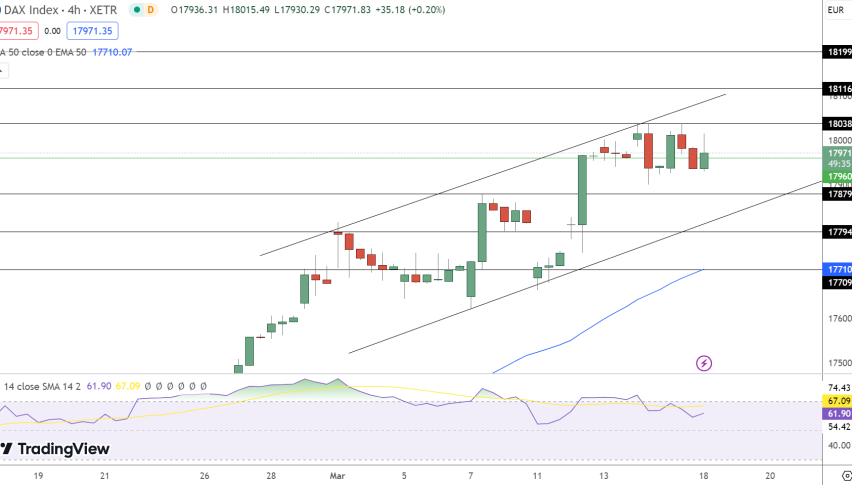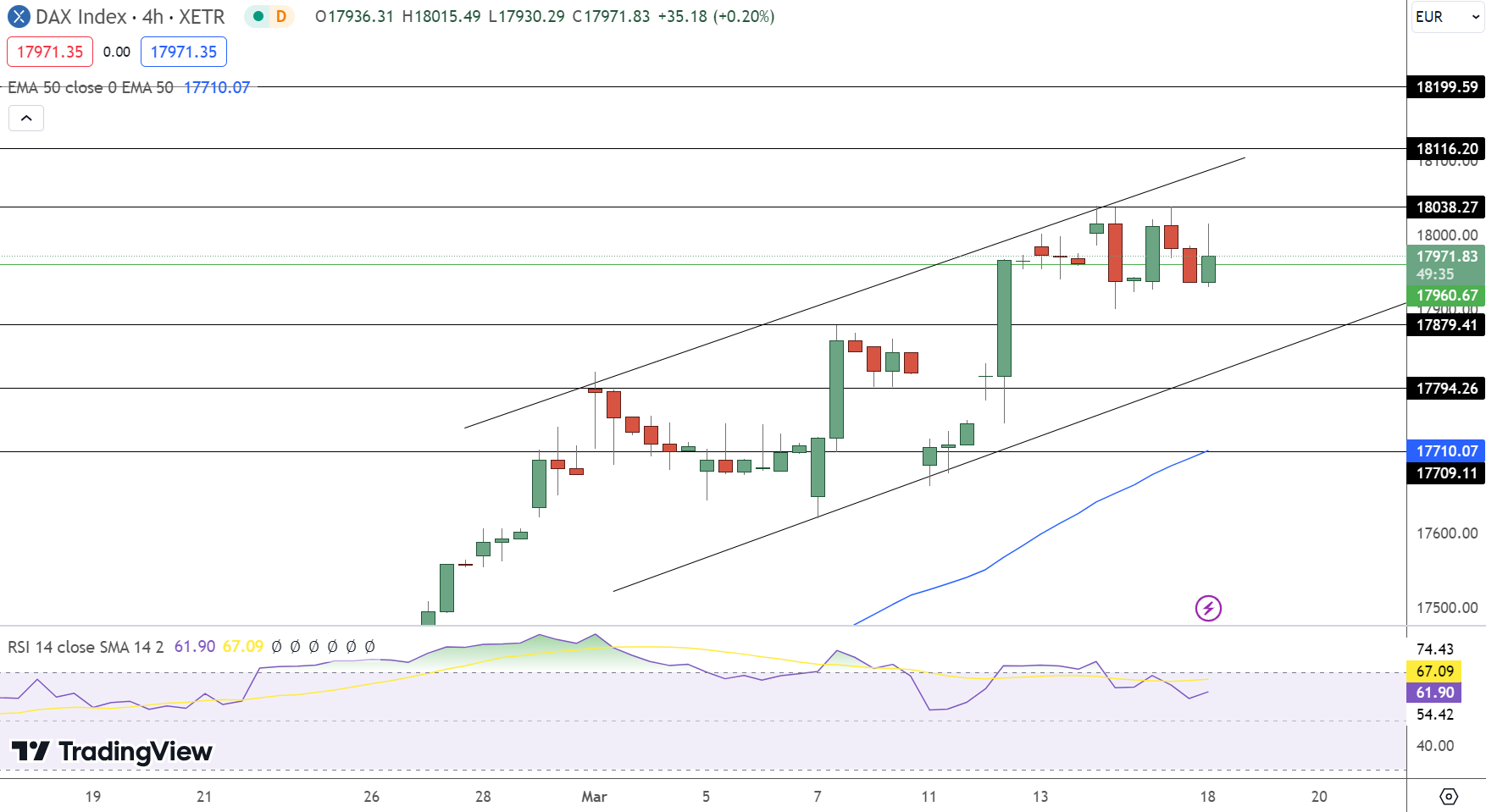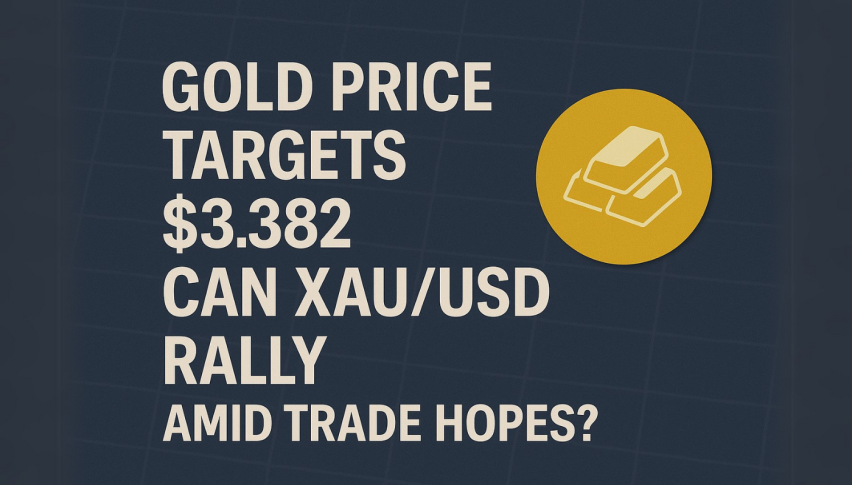German 30 (DAX) Holds Steady at 17970 Amid Global Economic Shifts
Despite various economic indicators, the DAX index has been showing a bullish trend and maintaining relatively stable performance

Despite various economic indicators, the DAX index has been showing a bullish trend and maintaining relatively stable performance. Despite slight fluctuations, the index has managed to hold its ground, reflecting investor confidence in the market.

However, the performance of the DAX index is influenced by a combination of domestic and international factors, including economic indicators, central bank policies, and global market sentiment. One of the reasons behind this steady performance is the positive sentiment surrounding the Eurozone economy.
China House Price Data and the PBoC Impact Market Risk Sentiment:
On the other hand, previously released economic data from China, particularly concerning house prices and the decisions of the People’s Bank of China (PBoC), have influenced market risk sentiment, including that of the DAX index. The decline in house prices, coupled with the PBoC’s decision to maintain the one-year MLF rate, has raised concerns about the Chinese economy’s stability.
Given China’s significant role in global trade and its impact on various sectors, including manufacturing and technology, any signs of economic slowdown in China can reverberate across international markets, impacting investor confidence and ultimately affecting indices like the DAX.
US Michigan Consumer Sentiment Pressured Riskier Assets:
On the US front, the US Michigan Consumer Sentiment Survey results have had an effect on market dynamics, including the DAX index. With consumer sentiment showing a slight decline and inflation expectations remaining elevated, investors have become more cautious, particularly regarding riskier assets.
This cautious sentiment has led to fluctuations in market indices, as investors weigh the potential implications of consumer sentiment on future economic growth and central bank policies.
As the US remains a key trading partner for many European countries, developments in the US economy can influence investor sentiment in European markets, impacting indices like the DAX.
Eurozone Inflation and Trade in Focus:
On the Euro front, investors keep a close eye on economic signs like inflation and trade numbers, which affect the DAX index. If inflation or trade numbers change more than expected, it can shift how investors feel and impact the market. For example, if inflation goes up more than predicted, people might worry that the European Central Bank will make borrowing money harder, making investors less excited.
But if trade conditions improve, like if Europe sells more than it buys, it can make investors feel more positive and help the DAX and other indices.
Thus, the changes in Eurozone economic indicators such as inflation and trade directly affect investor sentiment and subsequently impact the DAX index’s performance, reflecting market reactions to shifting economic conditions.
German 30 (DAX) Price Forecast: Technical Outlook
On March 19, the German 30 (DAX) witnessed a marginal decline of 0.03%, closing at 17971.83. This slight dip occurs amid fluctuating market sentiments, positioning the DAX just above its pivot point at 17960.67.
The index faces immediate resistance at 18038.27, with subsequent levels at 18116.20 and 18199.59 potentially capping further gains. Support levels are identified at 17879.41, 17794.26, and 17709.11, which could provide a buffer against further declines.

The Relative Strength Index (RSI) at 61 suggests a market leaning towards overbought territory, indicating potential for a pullback. However, the 50-Day Exponential Moving Average (EMA) at 17710.07 supports a bullish undertone in the longer term.
- Check out our free forex signals
- Follow the top economic events on FX Leaders economic calendar
- Trade better, discover more Forex Trading Strategies
- Open a FREE Trading Account



